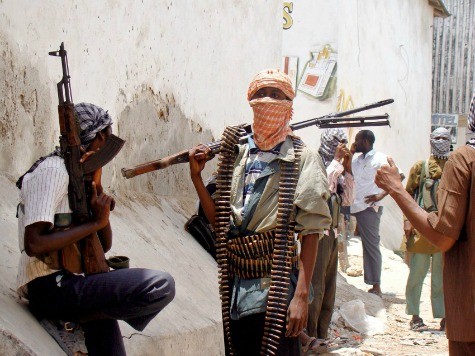
The United States State Department issued a Nigeria travel warning because of the radical Islamic uprising in the country. The terrorist group Boko Haram controls the northeast, but officials believe they could expand.
The Department continues to recommend against all but essential travel to the following states due to the risk of kidnappings, robberies, and other armed attacks: Adamawa, Bauchi, Bayelsa, Borno, Delta, Gombe, Jigawa, Kaduna, Kano, Katsina, Kebbi, Niger, Plateau, Sokoto, Yobe, and Zamfara. The Department also warns against travel in the Gulf of Guinea because of the threat of piracy. Based on safety and security risk assessments, the Embassy maintains restrictions for travel by U.S. officials to those states listed above; officials must receive advance clearance by the U.S. Mission for any travel deemed as mission-essential. U.S. citizens should be aware that extremists could expand their operations beyond northern Nigeria to other areas of the country.
The U.S. Mission advises all U.S. citizens to be particularly vigilant around government security facilities; churches, mosques, and other places of worship; locations where large crowds may gather, such as hotels, clubs, beer parlors, restaurants, markets, shopping malls; and other areas frequented by expatriates and foreign travelers.
Boko Haram means “Western education is forbidden” in the Hasau language and they want a strict Islamic state in Nigeria. In September, the group stormed the Yobe State College of Agriculture in the middle of the night and butchered over 50 students as they slept. Many schools have closed and others will not return to them out of fear.
The group also targets Christians and civilians. Authorities believe the terrorist group killed over 1,700 people since 2010. The United States Commission on International Religious Freedom revealed these stats about the group from last year:
- A total of 50 churches were bombed, burned or attacked, killing at least 366 people.
- Christians or people perceived to be Christians were attacked in 31 separate incidents, killing at least 166 people.
- Clerics or senior Islamic figures critical of Boko Haram were attacked in 23 separate incidents, killing at least 60 people.
- “Un-Islamic” institutions or persons engaged in “un-Islamic” behaviors were attacked in 21 separate incidents, killing at least 74 people.
Christian teenager Hajja revealed to Reuters the group will often kidnap Christian women and force them to be slave brides. One man held a knife to her throat and said if she did not convert to Islam they would kill her. She also said they choose poor towns because it is easier to brainwash the youth and recruit them. The locals are scared of the group and will often cooperate out of fear.
Piracy is also very prevalent in the Gulf of Guinea on the coast of Nigeria. In October, pirates abducted two Americans on an oil ship. They were eventually released in November.

COMMENTS
Please let us know if you're having issues with commenting.